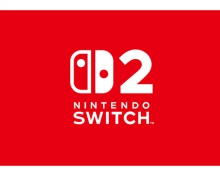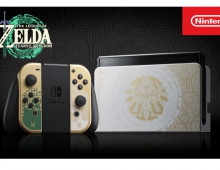
Videogame Wars-Nintendo Strikes Back with GameCube
Just in time for Christmas. One is a purple, toy-like cube. The other two are bulky, black, computer-like boxes. All three are powerful 128-bit videogame systems.
Nintendo Co Ltd will launch its long-awaited GameCube system on Friday in the opening shot of what promises to be a fierce three-way fight for the game console market. For Nintendo, the GameCube's ``cuteness,'' combined with beefed-up software lineups, represents a new strategy to get an edge over PC-like systems made by technology heavyweights. The number two game machine maker lost a big chunk of market share to Sony Corp in the 64-bit game console war.
Now it's back with what the company's 75-year-old charismatic president, Hiroshi Yamauchi, says is an advanced luxury toy -- as opposed to the all-in-one home entertainment systems that Sony and Microsoft Corp aim for with their game systems.
``The GameCube is likely to keep attracting the young audience, Nintendo's core loyal fan, as the company focuses on games,'' said Hirokazu Hamamura, editor in chief at Japan's leading video game magazine, Weekly Famitsu.
``Meanwhile, PlayStation 2 (Sony) and Xbox (Microsoft) will go head-to-head to become a home network platform by going after the older crowd,'' he said. But Sony, which has sold 15 million PlayStation 2 units globally, is likely to remain king of the hill, analysts say.
``We expect Sony, which grabbed 70 percent market share in the last console battle, will maintain 60-65 percent share in the renewed console war, with Nintendo's share edging up to 30-35 from 25, with the remainder taken by Microsoft,'' said Eiji Maeda, senior analyst at Daiwa Institute of Research.
That battle featured Sony's original PlayStation, Nintendo64, and Sega Corp's Dreamcast machine. FOLLOWING SONY'S PATH In a bid to revitalize its home game console business, industry oldtimer Nintendo took a leaf from Sony's book. The new console uses optical disks rather than the cumbersome cartridges of its Nintendo64 predecessor. It also offers broad support to third-party game creators, including providing easy-to-handle development tools and a cheaper loyalty charge.
``Nintendo has become friendly to outside software houses, just like Sony did for the PlayStation debut. That certainly boosted the interest of game creators,'' Famitsu's Hamamura said.
The high level of support for the GameCube was showcased at Nintendo's SpaceWorld game show last month. The show featured a wide array of third-party games, including Sega's Sonic Adventure 2 and Soul Calibur from Namco Ltd, hit titles made by software publishers which did not provide games for Nintendo64. Nintendo, creator of the wildly popular Pokemon game character, is also promoting its own games, such as the Mario and Zelda series. GameCube can also link to Nintendo's Game Boy Advance hand-held box, allowing users to transfer a character from one machine to the other and to continue to play the same game.
``Such a linkage will be only possible for Nintendo. That will offer new entertainment for users and will boost both machines' sales,'' said Takiko Mori, an analyst at UBS Warburg.
About 500,000 GameCube units, priced at 25,000 yen ($208) each, will hit store shelves on Friday, four weeks after Nintendo started a massive advertising campaign. It aims to ship four million units globally by March 31. Arch rival Sony, although enjoying a recent resurgence in PlayStation 2 sales thanks to Square Co Ltd's hit Final Fantasy X game, is not standing by quietly.
Sony cut the price of its console, which comes with a DVD player, to 35,000 yen ($290) from 39,800 yen in Japan in June. Some analysts anticipate an additional cut of 5,000 yen ahead of the key end-year shopping season, even perhaps a day before the GameCube launch, as it did for the Nintendo64 debut.
A spokesman for Sony Computer Entertainment, Sony's game unit, said it had no such plan, but he said the firm was always reviewing price strategy to fit market conditions. A summer campaign in which Sony joined hands with McDonald's Co (Japan) Ltd to promote its game characters was also part of a pre-emptive strike, Daiwa's Maeda said.
Japanese software makers also hold high hopes for GameCube, seeing it as a way to fend off an invasion of mobile phones, which compete for disposable income. According to the Computer Entertainment Software Association (CESA), Japanese consumer game software sales have fallen from a peak of 389 billion yen in 1997 to 293 billion yen in 2000. Software developers in Japan aren't as excited about Microsoft's offering, the Xbox.
``The Xbox's presentation in August fell short of the GameCube in terms of ease-of-use, design and unit size,'' said Yoko Sasao, an analyst at Commerzbank Securities.
``It seems the firm is not devoting as many resources to the Japanese market as it claims, given the delay in the hardware launch and the comparatively weak marketing efforts.'' The U.S. giant last month delayed the Japanese launch of Xbox to February 22 from a planned debut this year in a bid to first ensure its success at home. Its U.S. launch is set for November 8, ten days before the launch of GameCube in the American market.
But Tetsu Kayama, Chief Operating Officer at Sega, said the Xbox, which has a built-in hard drive and Internet connection with the most powerful console specification, may have an edge over PlayStation 2 whose users need to buy a hard disk and modem. Microsoft, which has a $500 million marketing budget, should not be underestimated, experts said. ``If the Xbox is priced much lower than PlayStation 2 it has a good chance to see success in Japan,'' Famitsu's Hamamura said.
Now it's back with what the company's 75-year-old charismatic president, Hiroshi Yamauchi, says is an advanced luxury toy -- as opposed to the all-in-one home entertainment systems that Sony and Microsoft Corp aim for with their game systems.
``The GameCube is likely to keep attracting the young audience, Nintendo's core loyal fan, as the company focuses on games,'' said Hirokazu Hamamura, editor in chief at Japan's leading video game magazine, Weekly Famitsu.
``Meanwhile, PlayStation 2 (Sony) and Xbox (Microsoft) will go head-to-head to become a home network platform by going after the older crowd,'' he said. But Sony, which has sold 15 million PlayStation 2 units globally, is likely to remain king of the hill, analysts say.
``We expect Sony, which grabbed 70 percent market share in the last console battle, will maintain 60-65 percent share in the renewed console war, with Nintendo's share edging up to 30-35 from 25, with the remainder taken by Microsoft,'' said Eiji Maeda, senior analyst at Daiwa Institute of Research.
That battle featured Sony's original PlayStation, Nintendo64, and Sega Corp's Dreamcast machine. FOLLOWING SONY'S PATH In a bid to revitalize its home game console business, industry oldtimer Nintendo took a leaf from Sony's book. The new console uses optical disks rather than the cumbersome cartridges of its Nintendo64 predecessor. It also offers broad support to third-party game creators, including providing easy-to-handle development tools and a cheaper loyalty charge.
``Nintendo has become friendly to outside software houses, just like Sony did for the PlayStation debut. That certainly boosted the interest of game creators,'' Famitsu's Hamamura said.
The high level of support for the GameCube was showcased at Nintendo's SpaceWorld game show last month. The show featured a wide array of third-party games, including Sega's Sonic Adventure 2 and Soul Calibur from Namco Ltd, hit titles made by software publishers which did not provide games for Nintendo64. Nintendo, creator of the wildly popular Pokemon game character, is also promoting its own games, such as the Mario and Zelda series. GameCube can also link to Nintendo's Game Boy Advance hand-held box, allowing users to transfer a character from one machine to the other and to continue to play the same game.
``Such a linkage will be only possible for Nintendo. That will offer new entertainment for users and will boost both machines' sales,'' said Takiko Mori, an analyst at UBS Warburg.
About 500,000 GameCube units, priced at 25,000 yen ($208) each, will hit store shelves on Friday, four weeks after Nintendo started a massive advertising campaign. It aims to ship four million units globally by March 31. Arch rival Sony, although enjoying a recent resurgence in PlayStation 2 sales thanks to Square Co Ltd's hit Final Fantasy X game, is not standing by quietly.
Sony cut the price of its console, which comes with a DVD player, to 35,000 yen ($290) from 39,800 yen in Japan in June. Some analysts anticipate an additional cut of 5,000 yen ahead of the key end-year shopping season, even perhaps a day before the GameCube launch, as it did for the Nintendo64 debut.
A spokesman for Sony Computer Entertainment, Sony's game unit, said it had no such plan, but he said the firm was always reviewing price strategy to fit market conditions. A summer campaign in which Sony joined hands with McDonald's Co (Japan) Ltd to promote its game characters was also part of a pre-emptive strike, Daiwa's Maeda said.
Japanese software makers also hold high hopes for GameCube, seeing it as a way to fend off an invasion of mobile phones, which compete for disposable income. According to the Computer Entertainment Software Association (CESA), Japanese consumer game software sales have fallen from a peak of 389 billion yen in 1997 to 293 billion yen in 2000. Software developers in Japan aren't as excited about Microsoft's offering, the Xbox.
``The Xbox's presentation in August fell short of the GameCube in terms of ease-of-use, design and unit size,'' said Yoko Sasao, an analyst at Commerzbank Securities.
``It seems the firm is not devoting as many resources to the Japanese market as it claims, given the delay in the hardware launch and the comparatively weak marketing efforts.'' The U.S. giant last month delayed the Japanese launch of Xbox to February 22 from a planned debut this year in a bid to first ensure its success at home. Its U.S. launch is set for November 8, ten days before the launch of GameCube in the American market.
But Tetsu Kayama, Chief Operating Officer at Sega, said the Xbox, which has a built-in hard drive and Internet connection with the most powerful console specification, may have an edge over PlayStation 2 whose users need to buy a hard disk and modem. Microsoft, which has a $500 million marketing budget, should not be underestimated, experts said. ``If the Xbox is priced much lower than PlayStation 2 it has a good chance to see success in Japan,'' Famitsu's Hamamura said.





















